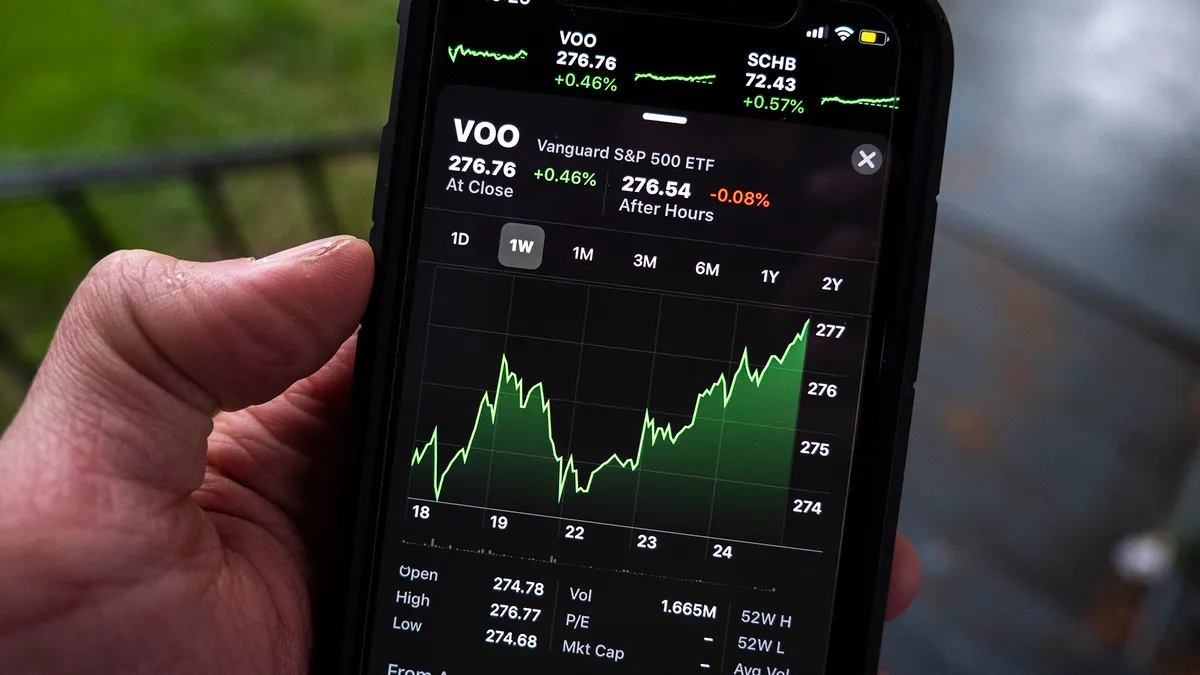Dive Brief:
-
One in two CFOs expect a "V-shaped" recovery, or a return to normal economic activity in the third quarter of 2020, a 333-person survey by CFO found.
-
About 40% of CFOs expect slower economic activity extending into 2021, or a "U-shaped" recovery. But only 9% of respondents expect a sustained recession, with economic activity not picking up until 2022.
-
"While every CFO estimates a drop in first-quarter sales as a result of the economic impact from COVID-19, the vast majority are optimistic the economy will return to normal by next year," said Vincent Ryan, editor-in-chief of CFO. "To address cash flow concerns — a top issue for CFOs — they are taking immediate action, from slowing investments to tapping credit lines to weather the crisis. And although they have a positive outlook, many are making near-term changes in headcount."
Dive Insight:
"CFOs are trying to figure out how long this will last, and how bad will it be," Ryan said. "Remember, this was taken two weeks ago. Things have definitely deteriorated since then. But as far as they could forecast, this is what CFOs were thinking at this point."
When it comes to sales, 53% of CFOs estimated a drop of between 1% and 20%, just within the first quarter. About 22% of CFOs think bigger: a sales falloff of between 21% and 50%.
To mitigate these potential damages, about half of the CFOs surveyed said their organization was delaying investments; 47% were working on improving their liquidity positions. One-fifth of respondents are shutting down or idling some of their company’s operations.
"Once the cash flow forecast starts deteriorating, for some it's just going to be cuts in pay, meaning everyone takes a 20% pay cut, or maybe executives take a cut, too," Ryan said. "But then, laying off or furloughing employees has to follow, because they just don’t know how deeply or how long this will hit their sales and profits."
Indeed, 35% of CFOs reported layoffs and furloughs. But most of those respondents, however, said they didn’t know how many of their employees would be affected; more than one-third said they planned to cut 15% or less of their employee base.
"CFOs, as stewards of the company's assets, have to be prepared for the downside scenario. Yet, they aren’t losing sight of the human cost of this global pandemic. They are focused on protecting employees and conserving cash to keep the bulk of their people employed," Ryan said.
Ryan says there’s been talk for years about the CFO being more strategic, and having a greater say in operations and strategy, and being a partner to the CEO. "But when crises like these occur, the CFOs really have to go back to their roots," he said. "Managing things like liquidity, access to capital, ratcheting down spending."
75% of respondents to the survey said they were halting all discretionary spending, Ryan noted. This means the CFO is forced squarely back into being the financial guy, "because things right now aren't much about strategy as about survival."
"It's really interesting that CFOs are in charge during the good times, but also have to take control during crises and downturns to keep the company alive," he said.
Among the respondents, 15% are industrial or automotive industry CFOs, about 8% are financial services, 9% are business and professional, 7% are in healthcare, and then there’s "everyone else," Ryan said.













